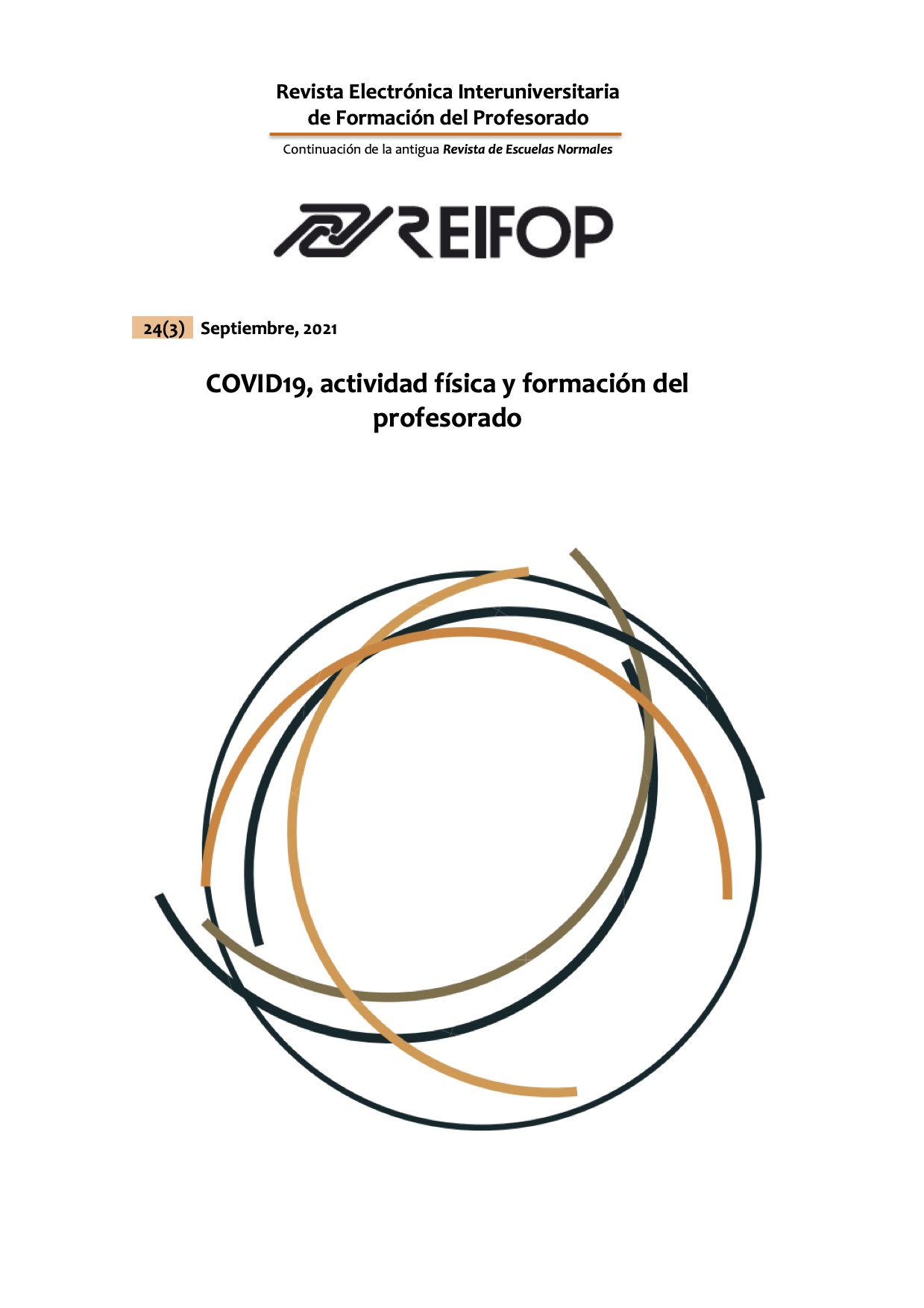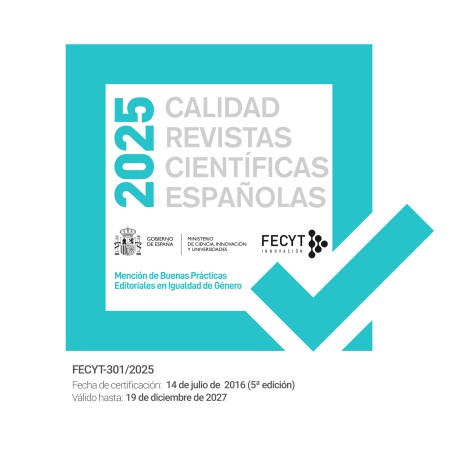La formación tecnológica del profesorado de música en Educación Secundaria. Un estudio de intervención basado en la integración de contenidos musicales, tecnológicos y pedagógicos en la Universidad de Valencia.
Agencias de apoyo
- Ministerio de Educación de Chile (Programa de Mejora Institucional, código PMI-EXA/PNII/05/2017) y el Ministerio de Ciencia e Innovación de España (Plan Nacional de i d i 2019, código PID2019-105762GB-I00).
Resumen
El presente trabajo de carácter descriptivo-exploratorio forma parte de un trabajo de mayor alcance realizado en Chile y España. Su objetivo ha sido fortalecer la formación tecnológica de los futuros profesores de música en Ed. Secundaria mediante el diseño, la implementación y la evaluación de una materia en dos cohortes consecutivas (cohortes 2017 y 2018, n= 81). En el diseño de intervención se tuvo en cuenta en su diseño componentes de alfabetización tecnológica, y dos estrategias de aprendizaje: proyectos (ABP) y trabajo cooperativo. La novedad del diseño consiste en la adaptación de un marco teórico de integración de contenidos disciplinares-tecnológicos-pedagógicos denominado TPACK que intenta favorecer la comprensión de la tecnología y su aplicación en la práctica docente de aula. Los productos de formación, objetos de los proyectos de trabajo, fueron materiales didácticos aplicables en el aula de Ed. Secundaria. Los resultados de ambas cohortes sugieren que los componentes caracterizadores de la intervención pueden ayudar a planificar de forma más reflexiva el uso de la tecnología musical en el aula. Además, el alumnado afirma que mejoró sus percepciones sobre sus habilidades tecnológicas en situaciones docentes y que dotaron de significado a la tecnología en su profesión.
Descargas
-
Resumen1600
-
PDF911
Citas
Aguaded, I. (2009). Miopía en los nuevos planes de formación de maestros en España ¿docentes analógicos o digitales? Comunicar, 33, XVII, 7-8. doi: 10.3916/c33-2009-00-001.
Ainley, J. (2018). Students and Their Computer Literacy: Evidence and Curriculum Implications. En J. Voogt, G.Knezek, R. Christensen y Kwok-Wing Lai (eds.) Second Handbook of Information Technology in Primary and Secondary Education. (p. 70-88). Cham: Springer International Publishing.
Baran, E., Chuang, H. y Thompson, A. (2011). TPACK: an emerging research and development tool for teacher educators. TOJET: The Turkish Online Journal of Educational Technology, 10, 4, 370-377. Recuperado de: https://files.eric.ed.gov/fulltext/EJ946646.pdf
Boza, A., Tirado, R. y Guzmán-Franco, M. (2010). Creencias del profesorado sobre el significado de la tecnología en la enseñanza: influencia para su inserción en los centros docentes andaluces. RELIEVE, 16, 1. 1-24. doi:10.7203/relieve.16.1.4152
Buchs, C., Filippou, D., Pulfrey, C. y Volpé, Y. (2017). Challenges for cooperative learning implementation: reports from elementary school teachers. Journal of Education for Teaching, 43(3), 296-306. doi:10.1080/02607476.2017.1321673
Campos Martínez, J. A. (2015). Lo cotidiano (entre usos y resistencias) de las TIC en un aula de la educación secundaria obligatoria. Apuntes etnográficos. Antropología Experimental, (15). doi:10.17561/rae.v0i15.2633
Chai, C. S., Koh, J. H. L., y Tsai, C.-C. (2010). Facilitating Preservice Teachers' Development of Technological, Pedagogical, and Content Knowledge (TPACK). Educational Technology & Society, 13 (4), 63–73. Recuperado de: https://pdfs.semanticscholar.org/dcb3/60e8cb725db4e36b692be410224ddaf74db1.pdf
Crawford, R. (2008). Are Resources Solely to Be Blamed? The Current Situation on Music Education Facilities, Computer and Music Technology Resources in Victoria. Australian Journal of Music Education, 1. 44-55. Recuperado de: https://search.informit.com.au/documentSummary;dn=517151838294372;res=IELHSS
Escudero, J.M., Martínez, B., y Nieto, J.M. (2018). Las TIC en la formación continua del profesorado en el contexto español. Revista Educación, 382, pp. 57-80. doi: 0.4438/1988-592X-RE-2018-382-392
Fernandes, S., Mesquita, M., Flores, M.A. y Lima, R.M. (2014) Engaging students in learning: findings from a study of project-led education. European Journal of Engineering Education, 39:1, 55-67, doi: 10.1080/03043797.2013.833170.
Gundara, J. S., y Sharma, N. (2013). Some issues for cooperative learning and intercultural education. Intercultural Education, 24(3), 237-250. doi:10.1080/14675986.2013.797202
Haning, M. (2016). Are They Ready to Teach With Technology? An Investigation of Technology Instruction in Music Teacher Education Programs. Journal of Music Teacher Education, 25(3). 78–90. doi: 10.1177/1057083715577696
Harris, J., Mishra, P., y Koehler, M. (2009). Teachers’ technological pedagogical content knowledge and learning activity types: curriculum-based technology integration reframed. Journal of Research on Technology in Education, 41(4), 393–416. doi: 10.1080/15391523.2009.10782536
Istenic, A., Cotic, M., Solomonides, I. y Volk, M. (2016). Engaging preservice primary and preprimary school teachers in digital storytelling for the teaching and learning of mathematics. British Journal of Educational Technology, 47(1), 29–50. doi: 10.1177/1365480216659733
Johnson, D., y Johnson, R. (2014). Cooperative Learning in 21st Century. Anales de Psicología / Annals of Psychology, 30(3), 841-851. doi:10.6018/analesps.30.3.201241
Kirschner, P. A., y De Bruyckere, P. (2017). The myths of the digital native and the multitasker. Teaching and Teacher Education, 67, 135–142. doi: 10.1016/j.tate.2017.06.001
Koehler, M., Mishra, P. y Cain, W. (2013). What is technological pedagogical content Knowledge (TPACK)? Journal of Education, 193, 3, 13-19. doi: 10.1177/002205741319300303
Kokotsaki, D., Menzies, V. y Wiggins, A. (2016). Project-based learning: A review of the literature. Improving Schools, 19 (3). 267-277. doi: 10.1177/1365480216659733
Larson, L., Forzani, E. y Leu, D.J. (2018). New Literacies: Curricular Implications. En J. Voogt, G.Knezek, R. Christensen y Kwok-Wing Lai (eds.) Second Handbook of Information Technology in Primary and Secondary Education. (pp. 38-52). Chan: Springer International Publishing.
Ljung-Djärf, A., Magnusson, A. y Peterson, S. (2014). From doing to learning: Changed focus during a preschool learning study project on organic decomposition. International Journal of Science Education, 36, 656-676. doi: 10.1080/09500693.2013.822604
Mettas, A., y Constantinou, C. P. (2008). The technology fair: A project-based learning approach for enhancing problem solving skills and interest in design and technology education. International Journal of Technology and Design Education, 18, 79–100. doi: 10.1007/s10798-006-9011-3
Mioduser, D., Nachmias, R. y Forkosh-Baruch, A. (2008). New Literacies for the knowledge society. En J. Voogt y G. Knezek (eds.). International Handbook of Information Technology in Primary and Secondary Education. Part One. (pp. 23-42). New York: Springer.
Mioduser, P. y Koehler, M. (2006). Technological pedagogical content knowledge: A framework for teacher knowledge. Teachers College Record, 108,(6). 1017–1054. doi: 10.1111/j.1467-9620.2006.00684.x
Mishra, P., Koehler, M. J., y Henriksen, D. (2011). The 7 transdisciplinary habits of mind: Extending the TPACK framework towards 21st century learning. Educational Technology, 51(2), 22-28. Recuperado de: https://www.jstor.org/stable/44429913
Mishra, P. y Mehta, R. (2017). What we educators get wrong about 21st-century learning: Results of a survey. Journal of Digital Learning in Teacher Education, 33(1), 6-19. doi: 10.1080/21532974.2016.1242392
Osborne, J. y Hennessy, S. (2003). Literature Review in Science Education and the Role of ICT: Promise, Problems and Future Directions. 2003. Recuperado de: https://www.nfer.ac.uk/literature-review-in-science-education-and-the-role-of-ict-promise-problems-and-future-directions/.
Overbay, A., Patterson, A., Vasu, E. y Grable, L. (2010). Constructivism and technology use: findings from the IMPACTing Leadership project. Educational Media International, 47, 2, 103–120. doi: 10.1080/09523987.2010.492675
Prensky, M. (2001). Digital Natives, Digital Immigrants Part 1. On the Horizon, 9, 5. 1-6.
Sancho, J., Bosco, A., Alonso, C. y Sánchez, J. (2015). Formación del profesorado en Tecnología Educativa: de cómo las realidades generan los mitos. Revista Latinoamericana de Tecnología Educativa, 14(1), 17-30. doi: 10.17398/1695288X.14.1.17
Sang, G., Valcke, M., Braak, J. V. & Tondeur, J. (2010). Student teachers’ thinking processes and ICT integration: Predictors of prospective teaching behaviors with educational technology. Computers & Education, 54(1), 103-112. doi: 10.1016/j.compedu.2009.07.010
Savage, J. (2010). A survey of ICT usage across English Secondary schools. Music Education Research, 12:1, 89-104. doi: 10.1080/14613800903568288
Seguí, S. (1990). Cançons valencianes per a l’escola. Valencia: Piles.
Snow, K. (2004). What counts as literacy in early childhood? En K. McCartney, y D. Phillips (Eds.), Blackwell Handbook of Early Childhood Development (p. 274–294). Malden, MA: Blackwell Publishing.
Tagle, T. (2011). El enfoque reflexivo en la formación docente. Calidad en la Educación, 34, 203-215. http://dx.doi.org/10.4067/S0718-45652011000100011
Tejada, J. (2004). Música y mediación de la tecnología en sus procesos de aprendizaje. Educación XX1, 7. 15-26. DOI:10.5944/educxx1.0.7.327
Tejada, J. y Thayer, T. (2019). Diseño, implementación y evaluación de una intervención de formación en tecnología musical basada en TPACK y ABP en la formación inicial del profesorado de música de Educación Secundaria. Revista Latinoamericana de Tecnología Educativa, 18(2). 9 -30. DOI: http://dx.medra.org/10.17398/1695-288X.18.2.9
Voogt, J., Knezek, G., y Somekh, B. (2008). ‘Factors Affecting Teachers’ Pedagogical Adoption of ICT. En J. Voogt and G. Knezek (eds.) International Handbook of Information Technology in Primary and Secondary Education (pp. 449-460). New York, NY: Springer.
Los artículos que se publican en esta revista están sujetos a los siguientes términos:
1. El Departamento de Métodos de Investigación y Diagnóstico en Educación de la Universidad de Murcia (España), junto con el Servicio de Publicaciones de la Universitdad de Murcia (Editum) son los editores de la revista REIFOP y conserva los derechos patrimoniales (copyright) de los artículos publicados, permitiendo la reutilización de las mismos bajo la licencia de uso indicada en el punto 2.
2. Las obras se publican en la edición electrónica de la revista bajo una licencia Creative Commons Reconocimiento-NoComercial-SinObraDerivada 3.0 España (texto legal). Se pueden copiar, usar, difundir, transmitir y exponer públicamente, siempre que: i) se cite la autoría y la fuente original de su publicación (revista, editores y URL de la obra); ii) no se usen para fines comerciales; iii) se mencione la existencia y especificaciones de esta licencia de uso.
3. Condiciones de auto-archivo. Se permite y se anima a los autores a difundir electrónicamente las versiones pre-print (versión antes de ser evaluada) y/o post-print (versión evaluada y aceptada para su publicación) de sus obras antes de su publicación, ya que favorece su circulación y difusión más temprana y con ello un posible aumento en su citación y alcance entre la comunidad académica. Color RoMEO: verde.
















